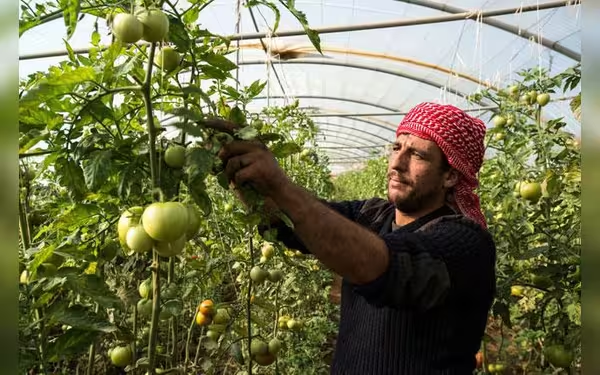Saturday, November 16, 2024 10:34 PM
Tamkeen Urges Agricultural Labour Reforms in Jordan
- Tamkeen calls for urgent reforms in agricultural labour regulations.
- Female agricultural workers face unique challenges in the sector.
- Historical exclusion of agricultural workers from labour laws addressed.
 Image Credits: menafn
Image Credits: menafnTamkeen calls for reforms in Jordan's agricultural labour regulations to protect workers' rights and improve working conditions.
The agricultural sector is a vital part of many economies, providing food and employment to millions. However, the rights of agricultural workers often remain overlooked, leading to significant challenges in their working conditions. Recently, the Tamkeen for Legal Aid and Human Rights Organisation has called for urgent reforms in agricultural labour regulations to better protect these workers' rights.
Linda Kalash, the head of Tamkeen, emphasized the importance of agricultural cooperatives in safeguarding farmers' rights. She stated, "To this day, there is no method for calculating farmers' working hours," which affects both Jordanian and non-Jordanian workers alike. This lack of clarity in working hours is just one of the many issues that agricultural workers face.
During a recent panel discussion titled "The Conditions of Agricultural Workers Post-Implementation of the Agricultural Labour Regulation and its Effectiveness in Practice," Tamkeen highlighted the pressing need for reforms. The panel focused on the unique challenges faced by female agricultural workers, who often encounter additional hurdles in their work environment. Kalash pointed out, "The rights of agricultural workers are a major economic and labour issue, requiring attention, given the significant challenges in the sector."
Historically, agricultural workers were excluded from Jordan's Labour Law when it was first introduced in 1960. This exclusion continued until 1996, when a new labour law was issued. An amendment in 2002 allowed the Cabinet to include certain categories of workers, but it wasn't until 2008 that the exclusion for agricultural workers was repealed. A new provision was established to outline specific protections for these workers.
In 2021, the Bylaw on Agricultural Workers No. 19 was introduced, which established rights for agricultural workers, including defined working hours, vacations, and social security. This was a significant step forward, but many believe that more needs to be done to ensure that these rights are effectively implemented and enforced.
The recent panel discussion brought together government officials, civil society groups, and sector experts to address the conditions of both male and female agricultural workers. Representatives from the Labour Ministry and Social Security Corporation were present, indicating a growing recognition of the need for reform in this sector.
The call for reforms in agricultural labour regulations is not just about improving working conditions; it is about ensuring that the rights of those who feed the nation are respected and upheld. As the agricultural sector continues to evolve, it is crucial that all stakeholders work together to create a fair and just environment for all workers. Only then can we truly say that we value the contributions of agricultural workers to our society.













